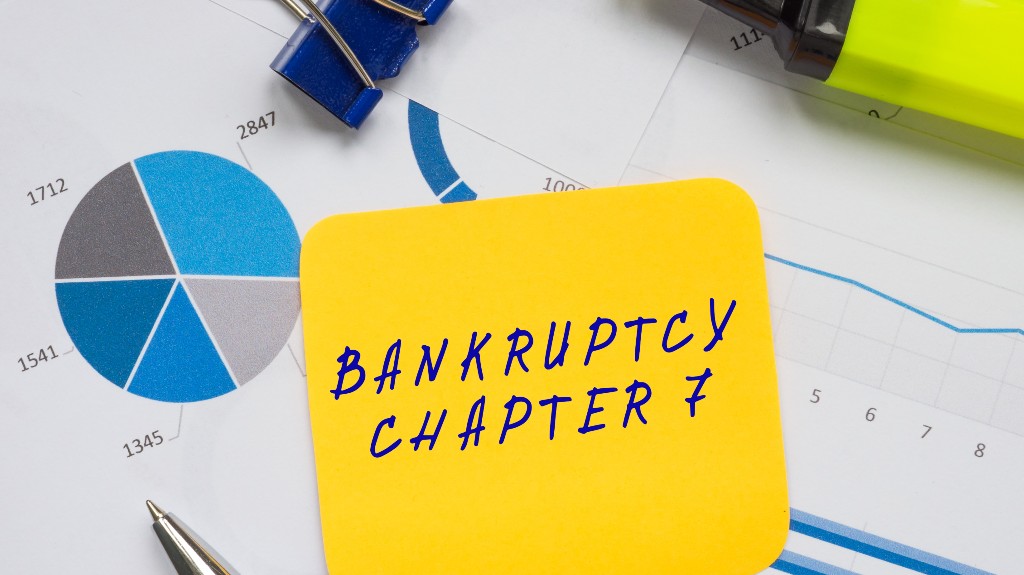Consumer debt continues to climb, reaching $416.51 trillion in the third quarter of 2022, now $2.36 trillion higher than right before the pandemic hit. These consumer debt amounts directly impact your health – serving as a significant source of stress.
If you’re overwhelmed by debt, you do have options. One common option is to file for Chapter 7 bankruptcy.
Keep reading to learn more about filing for Chapter 7 bankruptcy in Georgia.

What is Chapter 7 Bankruptcy?
Chapter 7 bankruptcy is a legal process allowing you to eliminate (cancel) your unsecured debt, such as credit cards and unpaid medical bills.
Some other consumer debts that can be eliminated under Chapter 7 bankruptcy include:
- Unpaid utility bills
- Unsecured personal loans
- Payday loans
- Unpaid federal or state income taxes
Bankruptcy cannot discharge domestic support, child support, payroll taxes, or student loans.
How Does Chapter 7 Bankruptcy Work?
When you file for Chapter 7 bankruptcy, the court invokes an “automatic stay.” An automatic stay temporarily prevents creditors from trying to collect money from you (or garnishing your wages or turning off your utilities) while you’re in bankruptcy.
The court will also appoint a trustee to your case. The trustee oversees your bankruptcy, arranges a meeting with your creditors, and sells certain propGeorierty to cover your debts.
You do not have to give up all your property in a Chapter 7 bankruptcy. Under Georgia law, you get to keep the certain property to help you get back on your feet, such as your car so you can get to work.
These assets fall under federal and state bankruptcy exemptions.
What Bankruptcy Exemptions Apply to Georgia Bankruptcies?
Although there are both federal and state bankruptcy exemptions, Georgia only recognizes its own state exemptions. Georgia does not allow you to use any federal bankruptcy exemptions unless they apply to employer-sponsored retirement accounts and disability benefits.
To use Georgia’s bankruptcy exemptions, you must be a Georgia resident for at least 2 years when you file your Chapter 7 bankruptcy.
Here are some exemptions that may apply to your bankruptcy case:
- Homestead exemption (allowing you to keep your home if you don’t have too much equity). You can exempt up to $21,500 in real estate and personal property.
- Personal property exemption (allowing you to keep certain personal property, such as clothing, furnishings, and household goods). You can exempt up to $5,000 (total) for most personal property, as long as each piece of property doesn’t exceed a $300 value.
- Motor vehicle exemption (allowing you to keep your car). You can exempt up to $5,000 of your car’s value.
- Tools of trade exemption (allowing you to keep certain tools and books necessary for your job). You can exempt up to $1,500 for these professional tools.
Hiring an Augusta, Georgia Debt Management Lawyer
Finances – and debt management – can be overwhelming and stressful. Avoid the stress and enlist the help of a Chapter 7 bankruptcy attorney in Augusta, GA. The Law Firm of Duncan & Brow. can help you navigate through the Chapter 7 bankruptcy process, helping to pave the way for a better tomorrow. Contact us today to learn more.


